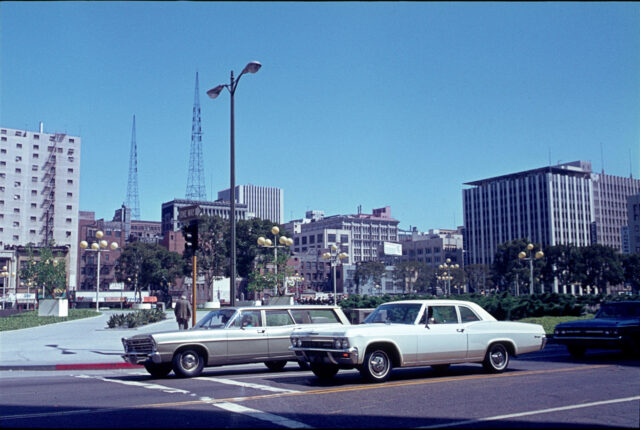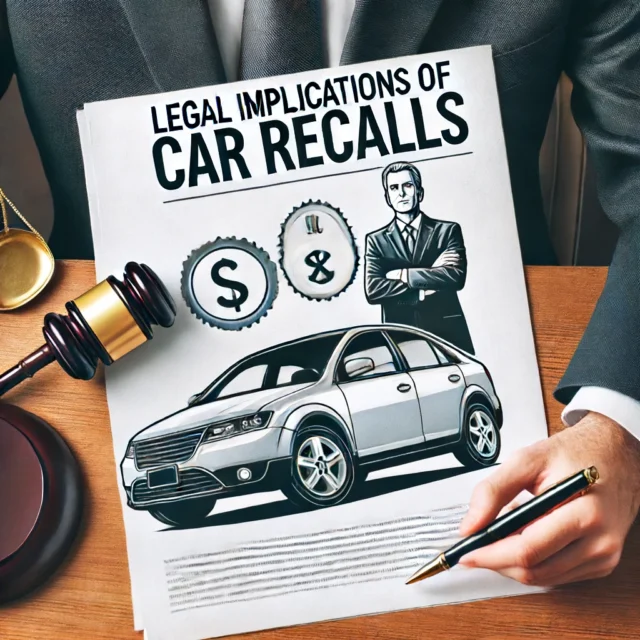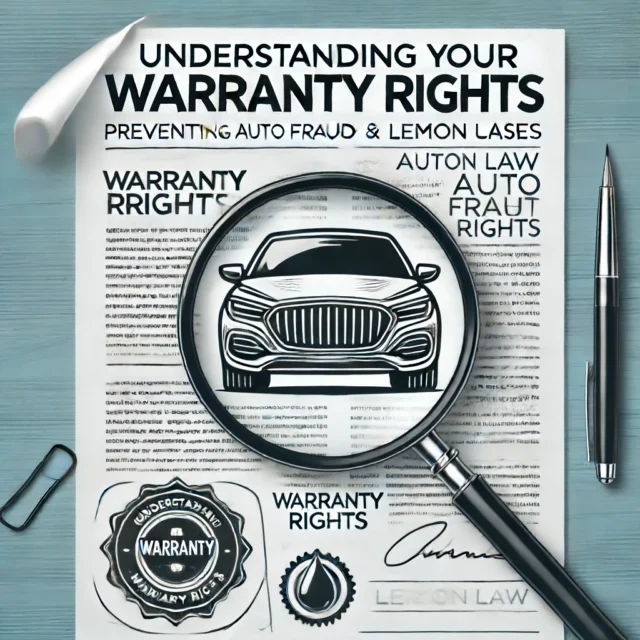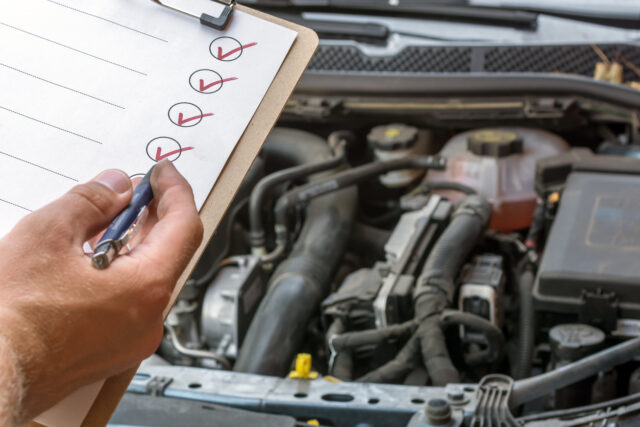As one of the most emotionally draining and physically harmful events in life, car accidents require victims to move forward by following a series of steps. From collecting evidence to dealing with an uncooperative insurance company, the aftermath of a car accident can be as difficult as the health consequences of the accident itself.
If you need help after a car accident, turn to a state-licensed personal injury attorney to ensure you receive just compensation for all costs and lost wages.
Three Common Types of Auto Accidents
Although there are several types of car crashes, three types stand out as the most common types of auto accidents.
Rear-End Accidents
Considered the most common type of auto accident, a rear-end collision happens when the front of one car makes an impact with the rear bumper of a second car. The severity of the personal injuries and vehicle damage depends on the speed traveled by the car that hit the rear bumper of another vehicle. Rear-end crashes are often caused by driver negligence at stoplights and intersections that have stop signs, such as not paying attention to the traffic in front of the vehicle.
Sideswipe Collision
Referred to by many insurers as a blind spot accident, a sideswipe collision can produce significant vehicle damage and life-threatening injuries. This common type of vehicle accident typically unfolds when one driver tries to merge into traffic. For example, a driver entering a highway at a high speed hits another car while trying to merge into the far right lane.
T-Bone Crash
When the front of one car impacts the side of a second car, both cars form a T shape that signifies a T-Bone collision. The vehicle impacted on the side usually receives the most damage. If the front end of a fast-moving vehicle slams into the driver’s side of a second car, the driver of the impacted car can face life-threatening injuries. Reckless driving is one of the most common reasons for a T-Bone crash.
As one of the most emotionally draining and physically harmful events in life, car accidents require victims to move forward by following a series of steps. From collecting evidence to dealing with an uncooperative insurance company, the aftermath of a car accident can be as difficult as the health consequences of the accident itself.
If you need help after a car accident, turn to a state-licensed personal injury attorney to ensure you receive just compensation for all costs and lost wages.
Three Common Types of Auto Accidents
Although there are several types of car crashes, three types stand out as the most common types of auto accidents.
Rear-End Accidents
Considered the most common type of auto accident, a rear-end collision happens when the front of one car makes an impact with the rear bumper of a second car. The severity of the personal injuries and vehicle damage depends on the speed traveled by the car that hit the rear bumper of another vehicle. Rear-end crashes are often caused by driver negligence at stoplights and intersections that have stop signs, such as not paying attention to the traffic in front of the vehicle.
Sideswipe Collision
Referred to by many insurers as a blind spot accident, a sideswipe collision can produce significant vehicle damage and life-threatening injuries. This common type of vehicle accident typically unfolds when one driver tries to merge into traffic. For example, a driver entering a highway at a high speed hits another car while trying to merge into the far right lane.
T-Bone Crash
When the front of one car impacts the side of a second car, both cars form a T shape that signifies a T-Bone collision. The vehicle impacted on the side usually receives the most damage. If the front end of a fast-moving vehicle slams into the driver’s side of a second car, the driver of the impacted car can face life-threatening injuries. Reckless driving is one of the most common reasons for a T-Bone crash.
You might also enjoy

The History Behind the Californian Lemon Law: Protecting Consumers and Their Rights
The Californian Lemon Law, established through the Song-Beverly Consumer Warranty Act in 1982, provides essential protections for consumers who purchase defective vehicles. Initially driven by growing consumer dissatisfaction in the 1960s and 1970s, the law mandates that manufacturers must repair, replace, or refund vehicles with significant defects after a reasonable number of attempts. Over time, the law has expanded to cover leased vehicles and used cars still under warranty, influencing similar legislation across the United States. Sierra Litigation offers expert legal support statewide to help consumers navigate Lemon Law cases, ensuring they receive the justice and compensation they deserve.

Legal Implications of Car Recalls: What California Car Owners Need to Know
Car recalls are an important mechanism for ensuring vehicle safety and protecting consumers from potential hazards. However, understanding the legal implications of car recalls is crucial for car owners, particularly in the context of auto fraud and lemon law cases.

How to Read and Understand Your Car’s Warranty: A Guide for California Car Owners
Understanding your car’s warranty is crucial for protecting your investment and ensuring you receive proper coverage. This blog post from Sierra Litigation outlines the different types of warranties, including manufacturer’s, extended, and implied warranties, and explains key elements such as coverage details, exclusions, and maintenance requirements. It guides car owners on how to read and understand their warranty, file a claim, and what to do if a claim is denied. The post also highlights the role of warranties in California Lemon Law cases, emphasizing the importance of documentation and legal consultation. For any issues with car warranties or potential auto fraud, Sierra Litigation offers expert legal assistance across California, including cities like Los Angeles, San Francisco, San Diego, and Sacramento.
You might also enjoy

The Role of Arbitration in Lemon Law Cases: What California Car Owners Need to Know
Arbitration plays a significant role in resolving Lemon Law cases in California, offering a faster and more cost-effective alternative to traditional court litigation. This process involves a neutral third party who reviews the evidence and makes a binding decision. Understanding arbitration clauses in your vehicle’s warranty, preparing thorough documentation, and considering legal representation are crucial steps for a successful arbitration. While arbitration has advantages such as speed, lower costs, and expert arbitrators, it also has limitations like limited appeal options and potential bias. Sierra Litigation provides expert legal assistance statewide, helping consumers navigate the arbitration process and ensuring their rights are protected.

Understanding Your Warranty Rights as a Car Owner: Preventing Auto Fraud and Lemon Law Cases
Understanding your car warranty rights is crucial for preventing auto fraud and navigating potential lemon law cases. This blog post from Sierra Litigation explains the importance of knowing the types of warranties available, including manufacturer’s, extended, and implied warranties, and how they protect against misrepresented coverage and improper repairs. It highlights the significance of vehicle inspections to detect hidden issues and verify the car’s history. The post also details California’s Lemon Law, which protects consumers from defective vehicles, and the steps to take if you suspect warranty fraud, such as verifying coverage and seeking legal advice. By staying informed and maintaining detailed records of all vehicle maintenance and repairs, car owners can safeguard their investment and ensure they receive the benefits of their warranty rights. For any legal assistance, Sierra Litigation offers expert advice and representation at no cost to consumers in cities across California, including Los Angeles, San Francisco, San Diego, Sacramento, Riverside, Anaheim, Long Beach, Santa Clara, Fresno, and Bakersfield.

The Importance of Vehicle Inspections Before Purchase: Preventing Auto Fraud and Lemon Law Cases
Ensuring a thorough vehicle inspection before purchasing a car is crucial for preventing auto fraud and avoiding potential lemon law cases. This blog post from Sierra Litigation emphasizes the importance of identifying hidden issues, verifying vehicle history, and ensuring safety and reliability through comprehensive inspections. It covers key components of a vehicle inspection, including exterior, interior, mechanical, and undercarriage checks, and discusses the benefits of professional inspections versus DIY inspections. The post also highlights how inspections can help detect odometer fraud and title washing, and underscores the importance of documentation for protection under California’s Lemon Law. For consumers in cities like Los Angeles, San Francisco, San Diego, Sacramento, Riverside, Anaheim, Long Beach, Santa Clara, Fresno, and Bakersfield, these insights are essential for making informed vehicle purchases. Sierra Litigation offers expert legal assistance at no cost to ensure consumers receive the justice and compensation they deserve.
